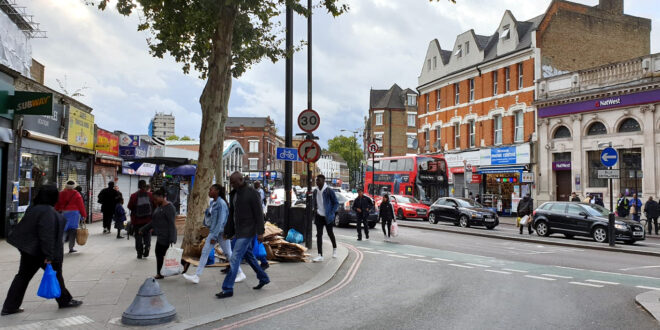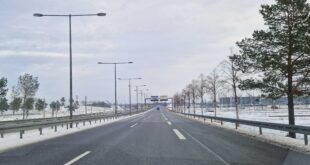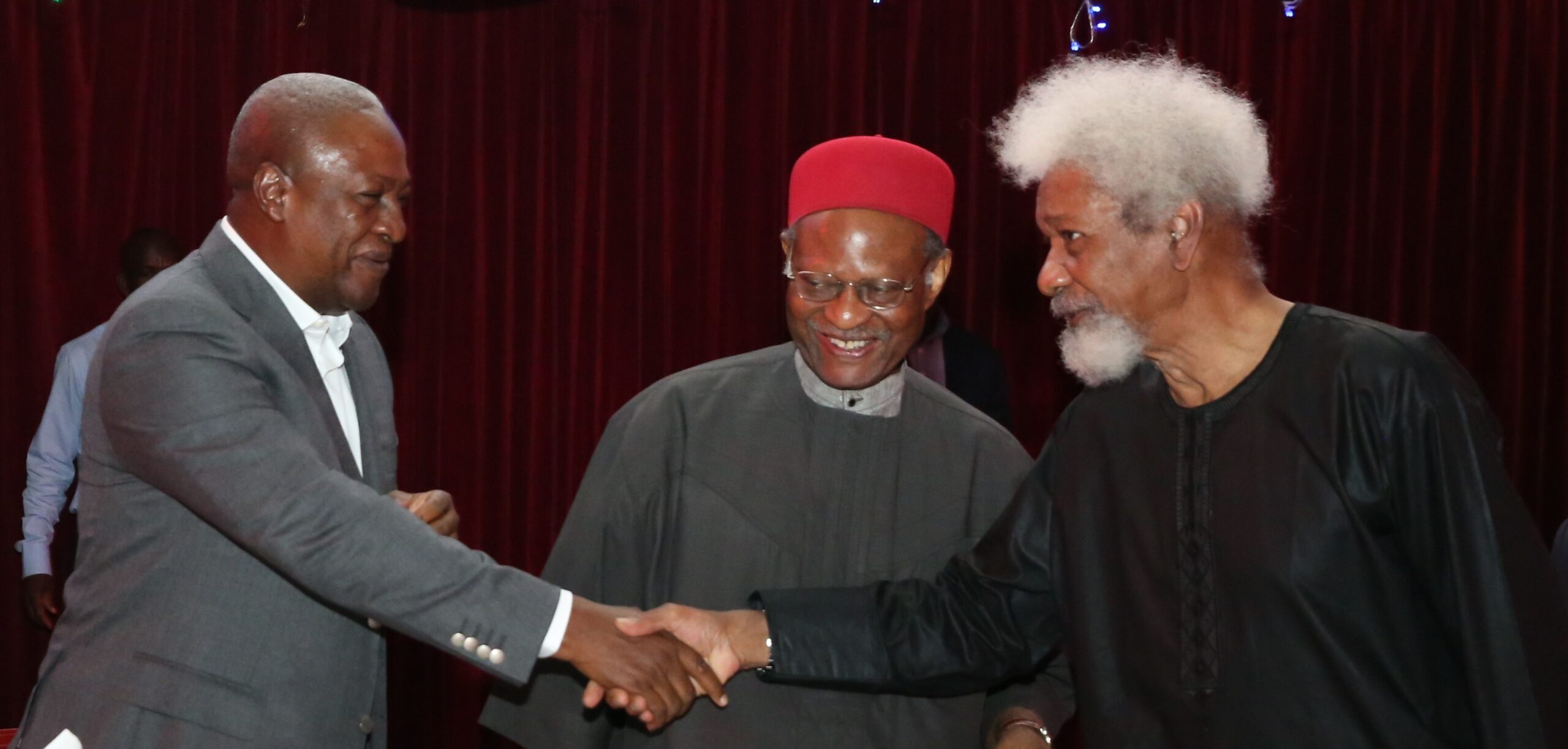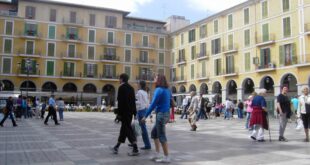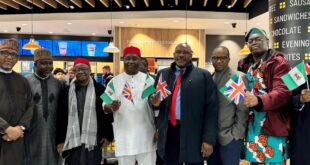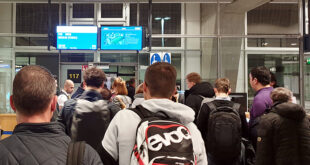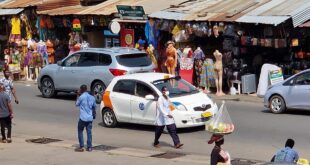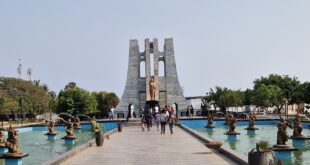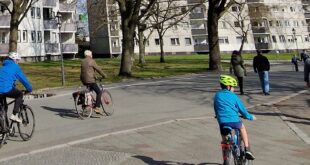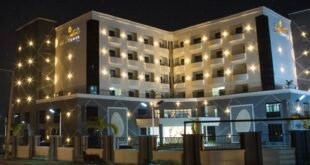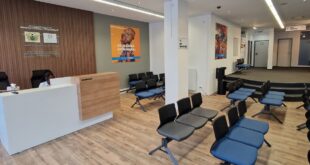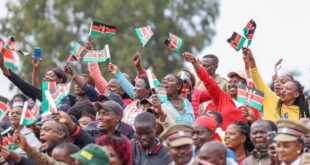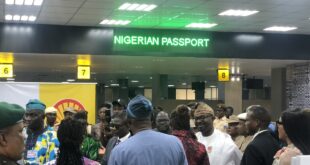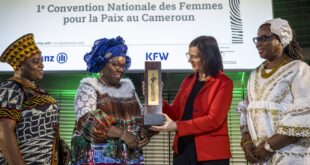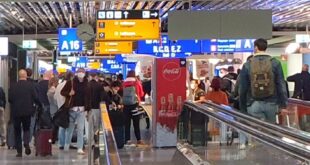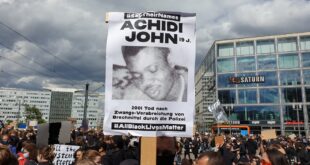Amy Riley, in an exclusive report for The African Courier, writes on the profound impact of people of Nigerian descent on the British capital, which is often referred to as the 37th state of Africa’s most populous land.
Although you are officially greeted in Peckham with Southwark Council’s orange placards, the real sign that you’re entering Little Lagos is the island of palm trees and yucca plants. Here is where the bustle of African and Caribbean enterprise begins.
On Queens Road, shops sell wholesale and retail foods from home: lafun, elubo, egusi, ede pupa, ewa pupa, oloyun and oyoo. A corner store called Jesus is Lord Phil. 2:11 caters for all needs: African and Caribbean food, mobile phone top-ups, Bibles, CDs. Silas, a Nigerian documentary maker pops into a shop to buy a phone card. He lives in Dulwich, but does his shopping in Peckham. “I come here every weekend,” he says.
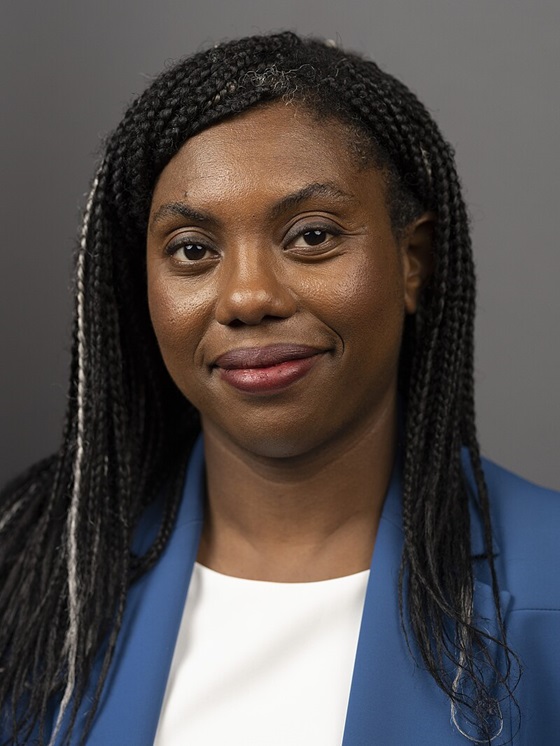
The first wave of Nigerians settled in Peckham in the 1970s and 1980s, when the Nigerian economy plummeted, following the end of the oil-boom era. Before this, the only immigrants living here were the Polish, who came over after World War II. Economic and political strife in Africa during 1990s sent floods of Nigerians over.
Why Peckham? “Why anywhere?” replies former South East London resident and design lecturer Greg Votolato. “These guys established a little group and people began to come. Then the markets started selling plantains and that was it. Then they started buying houses and renting rooms to people who came. The same way my family came to America.”
No one knows precisely when the Nigerian community in Peckham was dubbed Little Lagos. But as the years have passed, has that snapshot changed?
Peckham is one of the most multicultural places in London: Nigerians mix with Chinese, white Britons, Indians, Bangladeshis, Pakistanis, Caribbean, Turkish, Thai, Spanish, Koreans and more.
Queens Road
Most of the Nigerian shops here offer several services under one roof. A shop specialising in christening clothes, Holy Communion dresses and men’s suits also offers photography and video services. At another shop, Nigerian men can get their heads shaved, check e-mails, buy clothes and hang out. A Nigerian woman explains: “It’s hard to advertise your business to a spread-out migrant group. Having everything in one place is a good way for Nigerian people to reach each other.”
A large civic square called Peckham Space houses Peckham’s famous L-shaped library, a café, benches and a University of the Arts London building. A Nigerian woman inside the library helps local residents to fill out this year’s census forms. “Fifty per cent of the Nigerians who used to live here in the 1980s and 1990s have moved out,” she says. “On Saturdays, though, they come back here to buy their meat and fish.”
“Peckham is not actually that big,” she continues. “It starts at Peckham Academy and ends at Queens Road. Down Peckham High Street to Old Kent Road, and that’s where it ends. There’s a lot of people who live here, not just Nigerians.”
Most often, media reports on immigrant communities in Europe focus on problems of residency status, accommodation, integration, poverty and crime. And the “newness” of it all. Little Lagos, however, is an established community with an impressive track record of achievement among its inhabitants. Nigerian school children in London perform well in academic exams and the British Nigerians boast a wide selection of business, sport, education and artistic successes, including Shirley Bassey, Sade and Ben Okri.
Still, controversies have ensued. On a nearby estate further west down Peckham Road is a mural for Damilola Taylor, a ten-year-old who was murdered in 2000 under circumstances still widely debated among Nigerians.
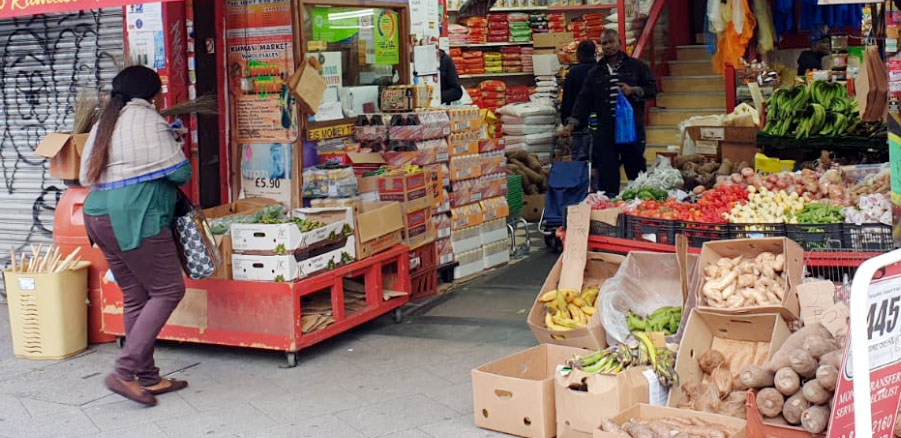
On the railings of Burgess Park near Peckham Hill Street and St George’s Way, there’s a memorial of flowers, cards, photos, tea lights and bandanas for George Ogaba, a member of the notorious Peckham Boys gang, who was killed aged 20 after his motorcycle was rammed by a car.
Is Peckham dangerous? Richard, 49, the caretaker of a community centre near the park, says, “It’s as dangerous as any other part of London. Peckham did have a bad reputation some 30 years ago when the Jamaican yardies came over. Then there was a big thing with crack. A lot happened on North Peckham Estate. It was all boarded-up flats, blind alleyways. That got knocked down. There are some stabbings still, but it doesn’t affect most people. It’s definitely changed over the years.”
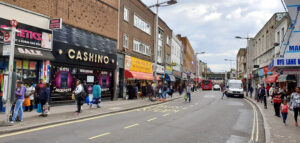
Rye Lane
Rye Lane is a mixture of high street and locally owned retailers – Halal butchers, Ghanaian grocers, Nollywood barbers, Nigerian fashion houses, African hair product stores and Asian nail salons. Many have Chinese, Indian, Nigerian and Caribbean people working together. A Caribbean hairdresser explains: “You see how it’s partitioned, Chinese on the nails, African on the hair, Indians doing something else? Everyone’s helping everyone to make money.”
On weekends, Peckham is in full throttle. Shoppers crowd the streets. Dance hall reggae and Nigerian music plays out. A stand next to Game Universe does brisk business in Nollywood films such as Plantain Seller, World of Angels and King of Justice. Inside A&PO fabric and dressmaking shop, the owner, Agnes Ampo, and a Nigerian friend wait for customers, while a man in the back sews. Agnes came to London 56 years ago from the Niger Delta and has been running her business in Peckham for the past eight years. “I miss home but get used to here,” she explains. “I came to be with my husband.”
At the end of Rye Lane, the pub that was used for Only Fools and Horses still remains, a sign of the past.
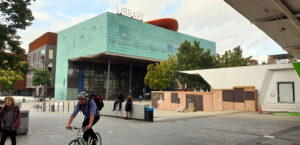
Choument Road
This is the road that feels most like Little Lagos. Tiny fashion shops sporting designer shoes are packed with Nigerians, while bargain seekers fish through designer clothes next to the butcher shop on the corner. Travel west one block, however, and it’s like entering another world: White people wine, dine and shop along Bellenden Road, with its road bollards and artsy street lamps designed by Antony Gormley. A drycleaners says: “Landlords thought it would be the next Notting Hill.”
For Nigerians, business is often a family affair. Den & Den Superstore sells videos, CDs and magazines. It’s owned by a Nigerian accountant, but all of the family help to run it. In Wesmen Hair and Beauty Salon, the owner Monica weaves tight cornrows in a young girl’s hair and smiles as she waves in customers.
There is a line outside the door at Lola Afrique Restaurant. One of the waiters comes out with a rubbish bag, wiping sweat off his brow. “Right now, too busy!” he says with a tired smile. The place is full. They serve abula, tuwo, jollof rice and monica fish. The portions are large and accompanied by a bowl of water for hand washing.
Peckham Rye
Cargo, phone and money transfer rates are advertised at most shops. A Nigerian woman says: “Many Nigerian businesses help people to send money home, send cars home, send boxes of goods or clothes over, maybe look for schools for a child.”
Some Nigerians here run businesses in Africa and travel back and forth. Entrepreneurs organise their business fairs to get UK companies to tap into industries in Nigeria – housing projects, for instance. “Many Nigerians still have hopes and aspirations to go home and buy a house,” a woman explains. “Sometimes they don’t like the values their children are buying into here or they just want to be with family again.”
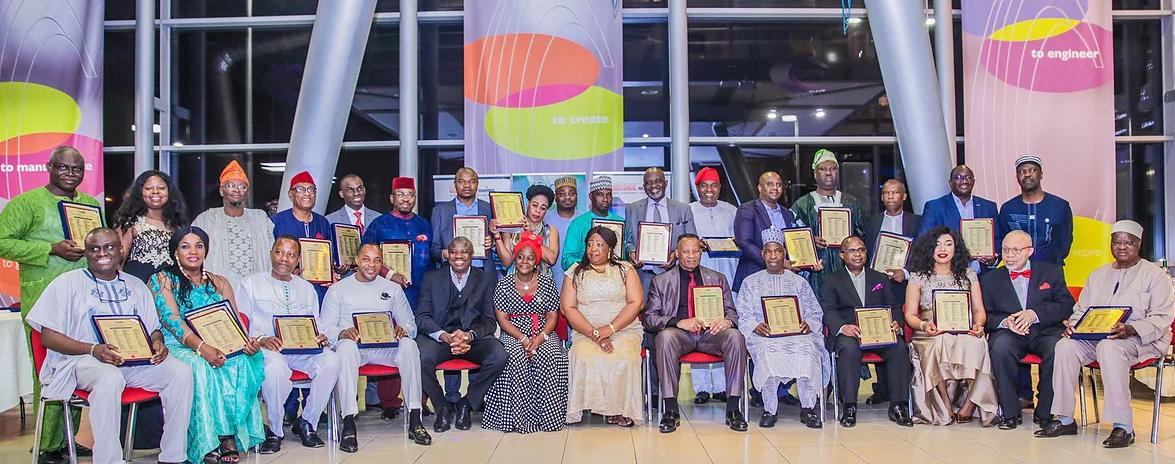
Awardees at the Nigerian Diaspora Global Hall of Fame ceremony, London, July 2017. The British capital boosts the largest African community in Europe /Photo: Jermaine Sanwoolu
One of the largest mosques in the area, Peckham Islamic Centre, is attended by a mixed congregation; Nigerians comprise about ten per cent. Asid Masood, 36, says, “Anybody can come here. We’re all in peace, no problem. We have two new mosques for Nigerian and Gambian people.”
Peckham Hill Street & St Georges Way
At the Peckham Hill Street bus stop stand 8ft-high billboards plastered with African, Caribbean and mixed-race faces. Travelling north, green spaces with leafy trees and estates begin to appear, and it’s quieter.
On Peckham’s border lies Burgess Park. It’s well used, and three Nigerian football matches are taking place. Yoruba and English fill the air.
On the park’s edge are several estates. At the heart is the community centre. Sundays are completely booked with several Nigerian church groups, such as Eternal Zion, Glory of God and Cherubim and Seraphim. Tonight there’s a private Nigerian party.
Watching a football match is 42-year-old Shola, who is visiting from Ibadan (a city in Nigeria). He wears a black leather jacket and a green wool cap. He says he’s a prophet and that he’s visiting the Jerusalem Parish at Eaton Road. So, how’s Nigeria? “Hot,” he says with a smile.
© African Courier Media
 THE AFRICAN COURIER. Reporting Africa and its Diaspora! The African Courier is an international magazine published in Germany to report on Africa and the Diaspora African experience. The first issue of the bimonthly magazine appeared on the newsstands on 15 February 1998. The African Courier is a communication forum for European-African political, economic and cultural exchanges, and a voice for Africa in Europe.
THE AFRICAN COURIER. Reporting Africa and its Diaspora! The African Courier is an international magazine published in Germany to report on Africa and the Diaspora African experience. The first issue of the bimonthly magazine appeared on the newsstands on 15 February 1998. The African Courier is a communication forum for European-African political, economic and cultural exchanges, and a voice for Africa in Europe.

